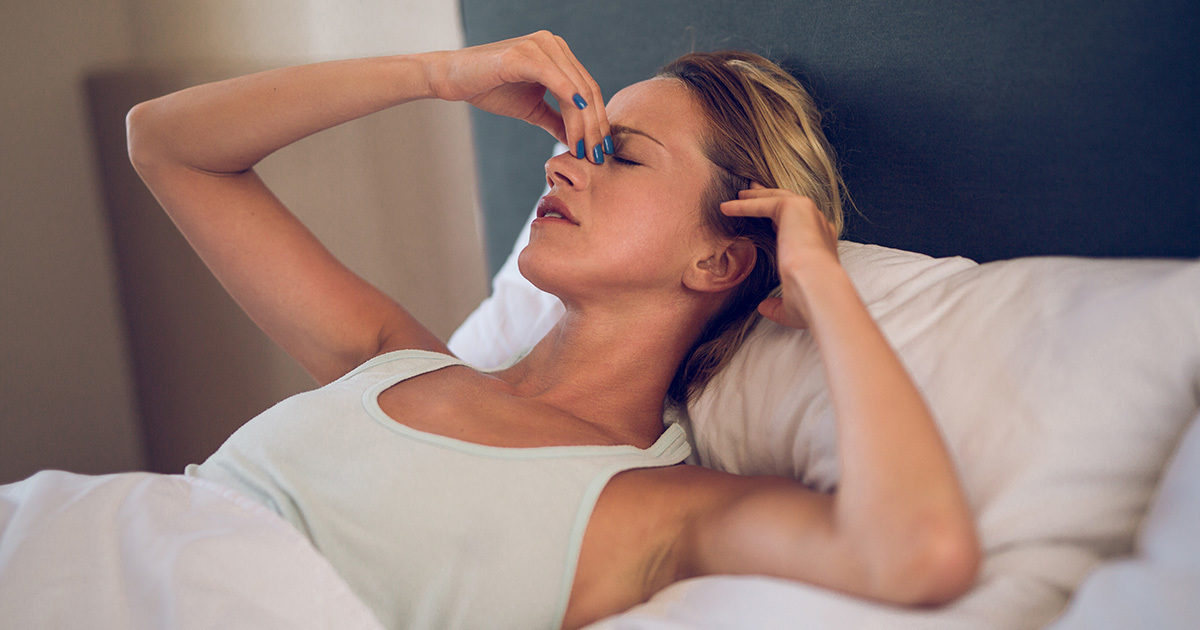Getting a Poor Night’s Sleep Hurts…Literally
UT Health Austin pain specialist explains the connection between chronic pain and sleep disturbances and shares tips for managing both
Reviewed by: Mark Queralt, MD
Written by: Lauren Schneider

Can’t sleep because your back hurts, only to find your back hurts even more when you don’t sleep? You’re not alone. According to the Centers for Disease Control and Prevention (CDC), approximately 20% of adults in the United States experience chronic pain, and among them, 67-88% also face sleep challenges.
“By understanding the connection between chronic pain and sleep, patients can make lifestyle changes that restore rest and reduce discomfort,” says Mark Queralt, MD, a board-certified physical medicine and rehabilitation specialist and the Clinical Director of the Back and Neck Pain Center within UT Health Austin’s Musculoskeletal Institute.
Learn how the Back and Neck Pain Center care team works to understand and address your pain.
<br>A Common Culprit
Chronic pain and sleep disturbances are often linked to an imbalance in the nervous system, which consists of two complementary pathways: the sympathetic nervous system, responsible for triggering the body’s “fight or flight” response to danger, and the parasympathetic nervous system, which helps the body relax after periods of stress.
“Your sympathetic nervous system is designed to protect you by preparing your body to respond to threats,” explains Dr. Queralt. “It does this by releasing stress hormones and increasing muscle tension to help you either defend yourself or escape to safety. “
“When the sympathetic nervous system becomes overactive, it can trigger these stress responses even in the absence of real danger,” continues Dr. Queralt. “This heightened activity can take a toll on the body over time.”
An overactive sympathetic nervous system not only makes it harder to fall or stay asleep due to heightened alertness but can also contribute to chronic pain through constant muscle tension.
A Vicious Cycle of Sleep Disturbance and Pain
Since chronic pain and sleep difficulties often share a common cause, they tend to worsen each other. Pain makes it difficult to fall asleep, and restless nights result in a lack of restorative sleep that is crucial for alleviating pain.
Sleep provides your body with the opportunity to rest, repair, and recharge for the day ahead. While you sleep, your heart rate and breathing slow, blood pressure drops, and muscles relax. During deep sleep, your brain releases hormones that promote tissue growth and repair, helping to restore sore or damaged muscles and reduce inflammation—a key factor in pain relief. Your immune system also depends on sleep to produce white blood cells that fight off harmful viruses and bacteria, which can contribute to inflammation and hinder the healing process.
Learn how your immune system works to keep you healthy.
<br>Lack of sleep can significantly impact your mood and psychological well-being. Chronic sleep disturbances can heighten feelings of agitation, worry, and stress, leading to mood disorders such as anxiety or depression. In contrast, a good night’s sleep helps regulate hormones, energy, and stress levels, setting a positive tone for the day. A more positive, less anxious mood can enhance recovery and reduce overall pain sensitivity.
Healing the Mind and Body
“The connection between sleep, pain, and nervous system function often means that struggles with one can lead to challenges with the others,” shares Dr. Queralt. “Fortunately, these interrelated issues also mean that small lifestyle changes aimed at soothing the sympathetic nervous system can have a significant impact on both pain and sleep.”
Sleep Hygiene
Developing habits around a consistent pattern of quality sleep can help promote more restful, restorative sleep.
Explore these 7 tips for better sleep hygiene.
<br>“By establishing a consistent sleep routine, you can help reset your body’s internal clock, making it easier to fall asleep and wake up feeling refreshed,” says Dr. Queralt.
Relaxation Techniques
Relaxation techniques you can practice at home, such as meditation, guided imagery, deep breathing exercises, yoga, and progressive muscle relaxation (alternately tensing and releasing muscles), can counter anxiety and racing thoughts, helping you to drift off to sleep more easily.
“Other relaxation strategies include engaging in activities that bring you peace,” shares Dr. Queralt. “Activities that help you achieve a flow state, where you are calmly immersed in the task at hand, are useful for relaxation.”
Cognitive Behavioral Therapy
The Back and Neck Pain Center offers cognitive behavioral therapy, where providers help patients identify behaviors that may interfere with sleep or worsen chronic pain.
“Patients develop a better understanding of how these behaviors affect them and learn how to change them to improve sleep,” adds Dr. Queralt.
Regular Exercise
Exercise plays a vital role in reducing pain and promoting restful sleep. Over time, regular exercise can lower your blood pressure and stabilize your nervous system
Learn more about the hidden health benefits of exercise.
<br>“Regular, moderate exercise reduces stress, decompresses the mind, promotes deep, slow-wave sleep, and improves overall health,” says Dr. Queralt. “Even going for a 30-minute walk each day can positively impact both pain and sleep.”
Talk to Your Doctor
If your pain flares up when you lie down, you may simply need to adjust your mattress or pillows. If you’ve already tried this and haven’t found relief, it may be time to consult your doctor about other options for better sleep. Your doctor will assess your pain and help determine the best treatment options for you.
“At the Back and Neck Pain Center, our goal is to identify the underlying cause of your pain,” notes Dr. Queralt. “By addressing these factors, we aim to alleviate your discomfort at its source.”
For more information about the Back and Neck Pain Center or to request an appointment, call 1-833-UT-CARES (1-833-882-2737) or visit here.